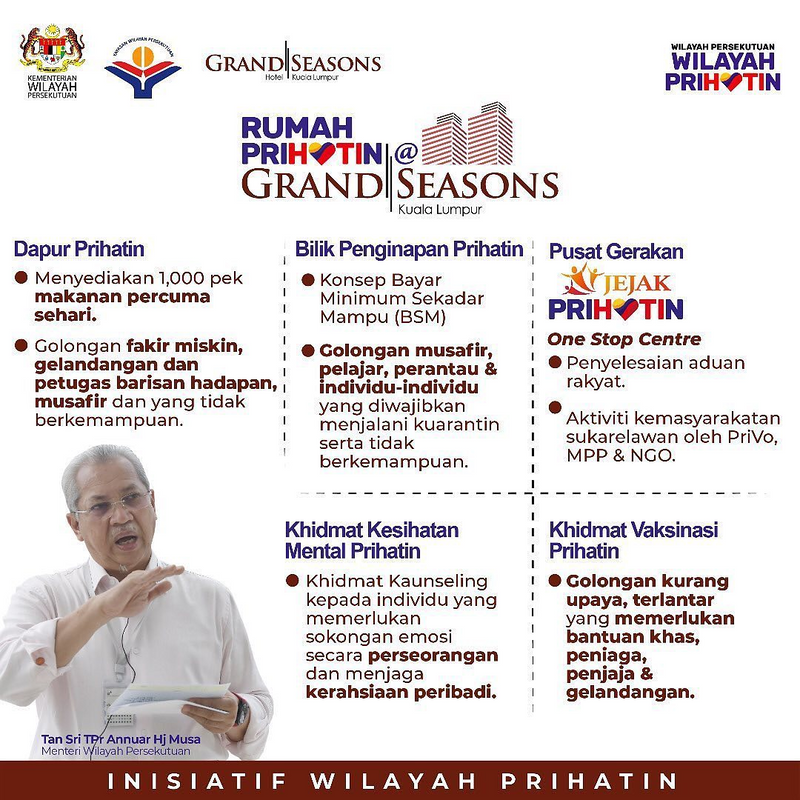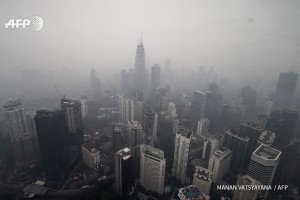PM: Be patient, relaxation considered for fully vaccinated individuals
Fully vaccinated individuals may soon enjoy less stricter lockdown restrictions, including travelling, as the country gears itself towards a return to normalcy. With Malaysia’s Covid-19 immunisation programme advancing well, Prime Minister Tan Sri Muhyiddin Yassin has asked for patience as the government works out its National Recovery Plan. Muhyiddin said the national vaccination programme is a “light at the end of the tunnel” in the country’s battle against the Covid-19 pandemic. “We hope that our vaccine supplies will also continue increasing this month and next, so we can keep to our projection of completing the recovery plan by the end of the year,” said Muhyiddin. The Star in a recent report quoted health experts as saying that relaxation of Covid-19 rules can be considered for those fully vaccinated as it may encourage hesitant individuals to get their jab. However, they feel that such a move should only be done after the majority of the Malaysian population is fully vaccinated. Health experts also said a balance needs to be struck between incentivising people to get vaccinated and remaining cautious, especially in light of the Delta variant. (The Star)
Berjaya Corp plans to privatise BLand, sell BToto and set up hospitality REIT
Berjaya Corp Bhd (BCorp) plans to privatise subsidiary Berjaya Land Bhd (BLand) and sell Berjaya Sports Toto Bhd (BToto) under the diversified group’s strategic transformation plan, which includes a proposed hospitality real estate investment trust (REIT). BCorp group CEO Abdul Jalil Abdul Rasheed said today BCorp has not set a timeline to privatise BLand but he hopes BCorp will “do it sooner rather than later”. As BLand owns a lot of companies, Abdul Jalil said BCorp sees the need to rationalise BLand, and the best way is to privatise BLand. He said BCorp plans to sell BToto as the number forecast operator is in a highly regulated business. According to him, BCorp’s preference is to focus on businesses that are not highly regulated. BCorp’s subsidiaries comprise BLand, BToto, Berjaya Food Bhd and REDtone Digital Bhd. Meanwhile, it plans to set up a hospitality REIT which focuses on five-star hotels in developed countries including Japan as the group plans its exit from other hospitality markets where BCorp is no longer competitive. BCorp said the group’s five business segments will be reorganised under the retail, food and beverage, property, hospitality and services segments. (The Edge)
Developers going for affordable housing projects
The property market is starting to see a tapering down in overhang inventory levels, as developers switch to affordable houses. AmInvestment Bank said the national residential overhang had tapered down by 8% year-on-year to 27,468 unsold units in the first quarter of 2021. It said this has been mainly due to developers moving from high-end products to affordable ones. “Affordable housing typically commands low margins which could be crimped further by intensifying competition, as this segment gets more crowded by the day. However, we think that companies under our coverage are established to compete, given their savvy management teams and healthy balance sheet, with net gearing ratios of 30% to 59%,” it said. The research house noted that developers such as Mah Sing Group Bhd and Lagenda Properties Bhd are in a net cash position. Separately, AmInvestment Bank said the loan-to-value (LTV) ratio offered by banks has been low. “Banks remain prudent in residential property lending to mitigate the risk of more borrowers falling into negative equity and limit the increase in loan loss provisions.” (The Star)
Use of use abandoned and unused buildings lauded
Industry players have lauded an initiative to temporarily use abandoned and unused buildings as welfare hotels and quarantine centres. Association of Valuers, Property Managers, Estate Agents and Property Consultants in the Private Sector Malaysia president Michael Kong commended the government on the idea. He said by having a centralised area where people in need can go to for shelter, food and security, the needy can be cared for much more effectively. Kong also suggested that as many hotels have closed down either permanently or temporarily, they should collaborate with the government so that the premises can be used for such purposes. The comments followed an announcement that the Grand Seasons Hotel, which has not been in use since 2019, is set to be converted into a welfare hotel to help those impacted by the Covid-19 pandemic. Following a collaboration with the Federal Territories Ministry and Yayasan Wilayah Persekutuan, the hotel will be revived and renamed Rumah Prihatin@Grand Seasons. The 40-storey building, which has 800 rooms, had been in operation for 20 years before closing down. The initiative will offer 300 hotel rooms to people under Prihatin Accommodation, as well as 1,000 food packages per day under Prihatin Kitchen. Other components are Prihatin Mental Health Services, Prihatin Vaccination Services and the Jejak Prihatin Operations Centre. (The Sun Daily)

Malaysia to stop using Sinovac vaccine after supply ends
Malaysia’s Health Ministry on Thursday said the country will stop administering the Covid-19 vaccine produced by China’s Sinovac once its supplies end, as it has a sufficient number of other vaccines for its programme. Malaysia’s inoculation drive will be largely anchored by the Pfizer-BioNTech mRNA vaccine moving forward, said Health Minister Adham Baba. Malaysia has secured about 45 million doses of the Pfizer-BioNTech vaccine, enough to cover 70% of the population, compared with 16 million doses of Sinovac’s shot. “About half of the 16 million have already been distributed, so the rest will be used to cover second doses,” Adham said. The announcement to stop using Sinovac’s inactivated virus vaccine comes amid increasing concern over its efficacy against new and more contagious variants of the coronavirus. Other vaccines approved in Malaysia include those of AstraZeneca, China’s CanSino Biologic and the Janssen vaccine of Johnson & Johnson. (The Edge)





